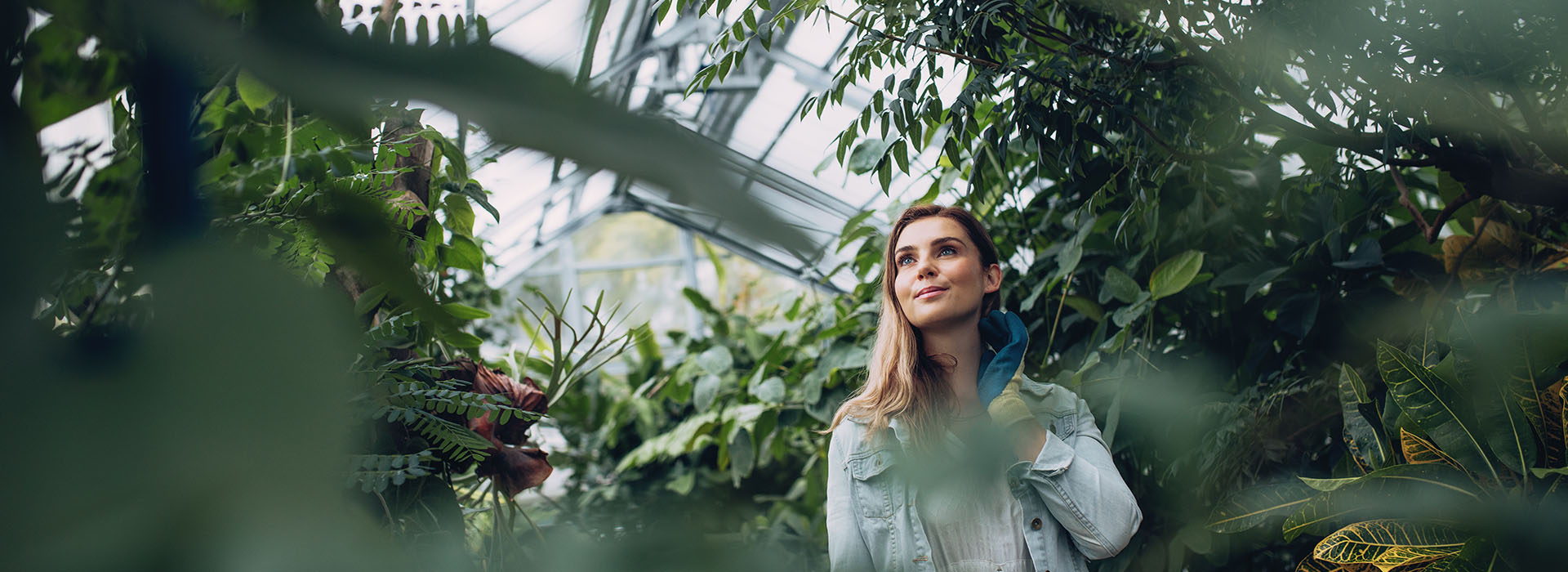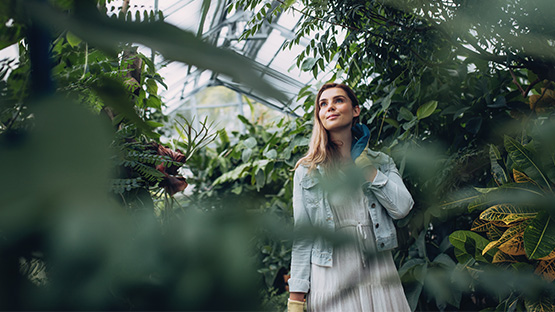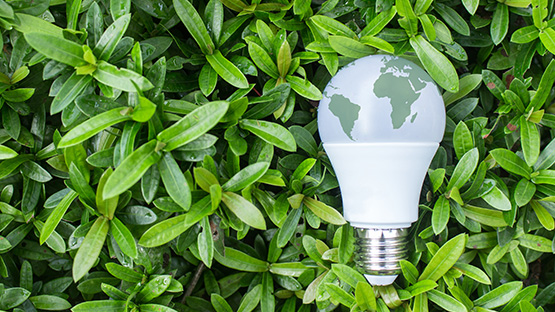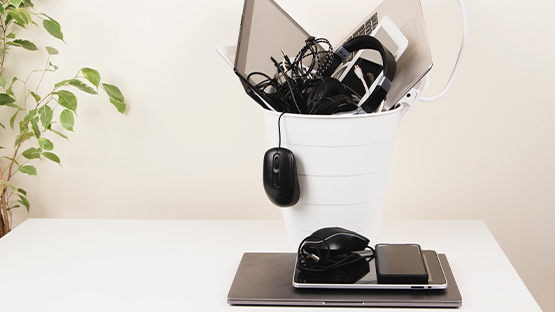Ecology in the garden - how to set up and maintain an eco garden?
Ecology

16 August 2023
The garden is the perfect complement to any home. It is worth creating this space in an environmentally friendly way. You will create such a beautiful space that follows the principles of ecological gardening. How do you create an eco garden and how do you maintain it afterwards? You will find the answer below.
Ecology in the garden - what does it give us?
Due to the growing popularity of ecology in Poland, more and more people are choosing to maintain their garden in an environmentally friendly way. Creating such a space has many advantages for both you and nature. Which ones?
Above all, if you like to live in harmony with the environment, running your own organic garden allows you to feel a great sense of satisfaction. It allows you to enjoy the fact that you are not poisoning nature and that you are actually its friend. However, if you have a garden which is managed in an ecological way, you have to prepare yourself for a lot of responsibilities connected with its maintenance. However, these are tasks that pay off, because as a reward for your contribution to creating an environmentally friendly place, you can enjoy fresh vegetables and fruit that you have grown yourself. It is also worth mentioning that by going organic, they will certainly taste better, but they will also be healthier for your body.
Combining ecology with environmental protection in the garden also, most importantly, helps to protect nature. By using natural fertilisers that are free of chemicals, the soil is not polluted. The same goes for getting rid of pests, which are not killed by chemicals, but only prevented from accumulating near the plants. Such a garden is also self-sustaining, as you need virtually no additional resources.
How to start an eco garden?
How do you take care of the environment when setting up your garden? All you need to do is set up an eco garden according to a few rules. This will make it environmentally friendly, but it will also look very good, as well as produce a large amount of crops that you can use later.
Above all, it is important to grow the plants as recommended and not to use any chemicals for this purpose. It is also advisable to create the garden in such a way that it is friendly to various animals and insects. These include, for example, hedgehogs, birds and also bees. You can build houses for them (e.g. birdhouses) or create a space where they can live, e.g. leave a wild area for hedgehogs. Taking care of these will help you with pest control, but will also keep your garden in good condition. In an eco garden, it is also a good idea to collect and then use rainwater to water your plants.
Organic flower and plant care products - natural fertilisers
If you want to go green in the garden, it is also worth taking care of organic flower and plant care products. For this purpose, natural fertilisers should be used, which will support the proper development of the plants in the garden and, in addition, be environmentally friendly. Which fertilisers are useful for organic gardening?
A very good natural fertiliser for plants is manure. It works best when you apply it during autumn, but it will also be useful at other times of the year. You can use it to fertilise the soil for conifers, for example, but also for vegetables such as cucumbers. Its big plus is that it enriches the soil with the necessary components such as nitrogen.
Another example of a natural fertiliser is nettle manure. It is made in a very simple way. Just pour 10 litres of water over a kilogram of fresh nettles, put the whole thing in a barrel and leave it for a fortnight. This will enrich the substrate for fruit bushes and roses.
Also try biohumus, which is made from other natural fertilisers processed by earthworms. A post-harvest crop is also a good idea, which will work well for poor soil and is created by sowing post-harvest, designated crops. The soil should be dug up in good time, which will help to fertilise it properly.
In addition to this, it is also a great idea to use kitchen leftovers. To this end, it is worth using egg shells, banana peels, nut shells, coffee grounds and even water from cooking vegetables. With the latter, however, make sure it is neither salty nor hot.
Getting rid of pests - green solutions
In an organic garden, it is worth taking care of the right solutions for getting rid of pests. Often, they can cause plants to catch all sorts of diseases, but they also simply won't grow properly. How do you get rid of them in an ecological and natural way?
Above all, chemicals should not be used for pest control. Although they are effective in helping to get rid of them, the chemicals they contain may not be entirely good for the health of the plants as well as yours, especially if you also have vegetables and fruit in your garden. Rather, rely on organic preparations to combat uninvited guests.
Another of the ways to keep your home garden organic is to use natural sprays, which you can prepare yourself from a number of plants such as onions and garlic, as well as weeds. Likewise, planting those that effectively repel unwanted pests will work. They will prevent their accumulation in the vicinity of the crop because of the smell they emit. For this purpose, lavender or velvetleaf, among others, will work well against aphids and ants.
Ecology in the garden - crop rotation
If you are planning to grow an organic vegetable garden, rely on the use of crop rotation. This will help the plants to develop properly. You will also prevent their diseases, but also the accumulation of pests. How to do it properly?
The main principle of crop rotation is to change the place where vegetables are grown every year. The place where you want to sow them should be divided into 4 parts. Beforehand, manure fertiliser can be used on them.
- Vegetables that need the most nutrients should be planted on the first section. These include cabbage, cucumbers or celery, among others.
- On the other hand, place your bets on vegetables that have a medium need for ingredients. This can include, for example, onions and parsley, but also peppers and tomatoes.
- The third section should include vegetables with low nutrient requirements. This is the ideal place for legumes like broad beans or beans. Dill, lettuce or spinach will do equally well there.
- The fourth section should be filled with perennial vegetables such as asparagus or perennial herbs.
The following year, however, the growing locations should be swapped. Thus, the first part should be in the place of the second, the second in the place of the third and the third in the place of the first. Only the place of the fourth section remains the same. This cultivation method is used in many organic gardens and works very well. 
Organic gardening - which plants to choose?
When planning your own organic garden, you may ask the question of what plants to buy for it. It all really depends on choosing the type of garden. Think about whether you want to put in a garden that will decorate your house, or perhaps one that will give you your own vegetables on allotments, for example, which give you a seed of ecology in the city.
If you want your garden to be more ornamental, start with the basis, which is a lawn. Instead of a lawn, you can also choose a flower meadow, but this is more suited to a larger area. Along the lawn, it is a good idea to plant different types of flowers that will bloom throughout the season such as, but not limited to, bell phacelia or glossy sage. This will create an ideal space for insects to take care of your garden. Opt for quite a variety of flowers to make it look aesthetically pleasing. Lavender or sunflowers are also good choices. If you plan to have trees in your garden, choose deciduous ones rather than fences and opt for hedges. On the other hand, give up coniferous shrubs, which have a bad effect on the soil.
When planning your garden more towards crops, it is first and foremost worth using crop rotation. Rather, opt for plants such as pumpkin, courgette or cucumber, for example. Sowing carrots, beetroot or leek will also work well.
Compost - ecology in the garden
Compost is a great natural and ecological fertiliser for every garden. Among other things, it will give you a more fertile soil, but also one that is full of the nutrients your plants need to thrive. It will also be a plus for you, because you will be able to dispose of, for example, leftovers from the kitchen. How do you create your own compost for your organic garden?
You can create a composter, i.e. a place to store your compost, in several ways, e.g. with boards, but also build it with bricks. You can also find ready-made compost piles in the shops. If you build it yourself, remember to leave holes so that the compost does not rot. Placing it in a shady spot that is not too windy at the same time will work best. However, it is important that it stands on the ground.
Once you have built it, you can throw various biodegradable waste in there. This is ideal for grass cuttings, tree leaves, but also branches. You can also throw weeds in there that do not have seeds, such as nettle, which will further speed up composting. In addition, you can easily throw kitchen scraps in there, but not all of them. Permitted products include fruit and vegetables and their peels, all coffee and tea, but also eggshells. Dairy products and meat waste are not permitted.
Creating an eco-friendly garden is not a difficult thing to do. Just follow the rules mentioned above and you will be sure that yours will be environmentally friendly. Go green in your garden too!
Czytaj również






